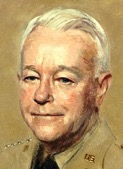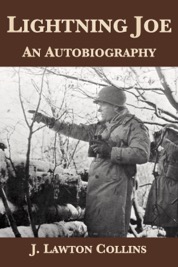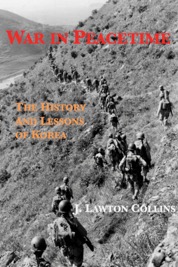
Collins was a chemistry instructor at West Point from 1921 to 1925. He completed the company officer course at the US Army Infantry School at Fort Benning in 1926, and the advanced course at the US Army Field Artillery School at Fort Sill in 1927. He was an instructor in weapons and tactics at Fort Benning from 1927 to 1931 and, promoted to major in 1932, was executive officer of the 23rd Brigade in Manila, and assistant chief of staff, as a G-2 officer, with the Philippine Division from 1933 to 1934.
Collins graduated from the US Army Industrial College in 1937, and from the US Army War College in 1938 where he stayed as an instructor from 1938 to 1940. Promoted to lieutenant colonel in 1940, to colonel in 1941 as chief of staff of VII Corps, and to general rank in 1942, Collins was chief of staff of the Hawaiian Department from 1941 to 1942 and commanded the 25th Infantry Division on Oahu and in operations against the Japanese on Guadalcanal between 1942 and 1943 and on New Georgia in 1943. Transferred to the European Theater of Operations, Collins commanded the VII Corps in the Allied invasion of Normandy, in the battles of the Hürtgen Forest and of the Bulge and until the end of World War II in Europe in May 1945.
After the war, Collins was chief of staff of Army Ground Forces until December 1945, director of information of the US Army from 1946 to 1947, Vice Chief of Staff of the US Army from 1947 to 1949 and Army Chief of Staff from 1949 to 1953 throughout the Korean War. He was the US representative to NATO from 1953 to 1954 and special US representative in Vietnam with ambassadorial rank from 1954 to 1955. He retired from active service in 1956, after almost 40 years of military service. In 1957 he became vice chairman of the board of Pfizer International subsidiaries. His books are his autobiography, Lightning Joe, and War in Peacetime: The History And Lessons of Korea.
Click on the cover for details about the eBook:





